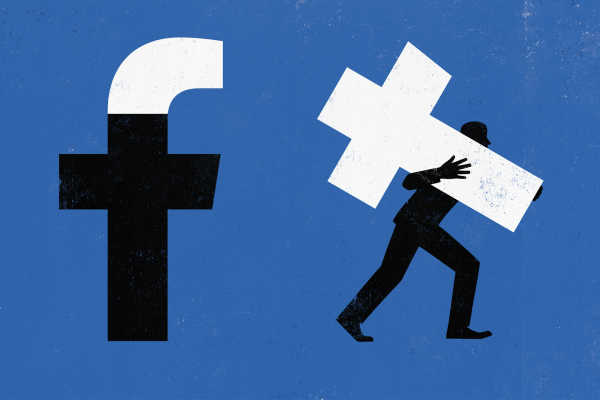BY NOW THE sins of Facebook, as a social media platform and megacorporation, are well-known. You’ve got invasions of privacy, data breaches, viral falsehoods, livestreamed rapes and murders, and the list goes on.
Well, a few months ago, the volunteer technology committee at the Catholic parish where my wife, Polly, works as social responsibility minister did something about it. They asked their parish council to consider taking the congregation off Facebook entirely and no longer using the platform as a medium of communication. When Polly told me about this, I was a little surprised. Maybe I missed something, but, amid the sporadic calls to “Delete Facebook” in the wake of the company’s various scandals, I hadn’t heard of a religious community actually implementing a boycott.
Once you think about it, the arguments for boycotting Facebook are pretty obvious. When we lend our eyeballs to that platform, we bring it advertising dollars, helping to fund its corrupt and dangerous practices. And what’s worse, the company’s business model makes every person or organization with a Facebook page a recruiter for the company and turns every posted detail of our lives into a product (consumer data) that the company can sell to commercial and political advertisers. When a congregation encourages parishioners to log onto a church Facebook page and share what they find there with interested friends, the church places its members and friends at risk of having personal information exposed to bad actors.
Read the Full Article

